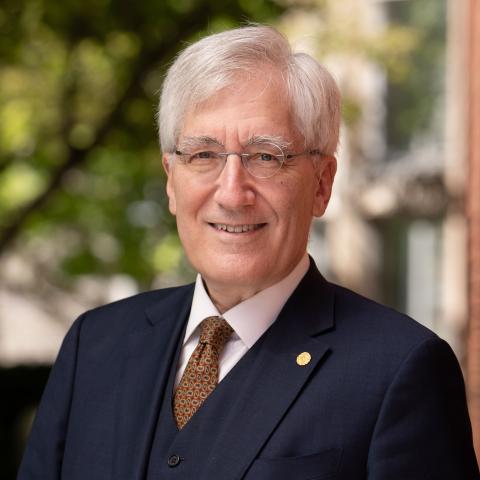
Robert P. George is McCormick Professor of Jurisprudence and Director of the James Madison Program in American Ideals and Institutions. He has served as chairman of the United States Commission on International Religious Freedom (USCIRF), and before that on the President’s Council on Bioethics and as a presidential appointee to the United States Commission on Civil Rights. He has also served as the U.S. member of UNESCO’s World Commission on the Ethics of Scientific Knowledge and Technology (COMEST). He is a former Judicial Fellow at the Supreme Court of the United States, where he received the Justice Tom C. Clark Award. A graduate of Swarthmore College, he holds J.D. and M.T.S. degrees from Harvard University and the degrees of D.Phil., B.C.L., D.C.L., and D.Litt. from Oxford University. He has been a visiting professor at Harvard Law School and is a member of the American Academy of Sciences and Letters and the Council on Foreign Relations.
Selected Publications
Making Men Moral: Civil Liberties and Public Morality (Oxford University Press, 1993)
In Defense of Natural Law (Oxford University Press, 1999)
The Clash of Orthodoxies (ISI Books, 2000); Embryo: A Defense of Human Life (Doubleday, 2008, with C. Tollefsen)
Body-Self Dualism in Contemporary Ethics and Politics (Cambridge University Press, 2008, with P. Lee)
What is Marriage? Man and Woman: A Defense (Encounter Books, 2012, with S. Girgis and R. Anderson)
Conjugal Union: What Marriage Is (Cambridge University Press, 2014, with P. Lee)
Conscience and Its Enemies: Confronting the Challenges of Liberal Secularism (ISI Books, 2016)
Truth Matters: A Dialogue on Fruitful Disagreement in an Age of Division, with Cornel West (Post Hill Books, 2025)
Selected Honors and Awards
Professor George is a recipient of many honors and awards, including the U.S. Presidential Citizens Medal, the Honorific Medal for the Defense of Human Rights of the Republic of Poland, the Canterbury Medal of the Becket Fund for Religious Liberty, the Sidney Hook Memorial Award of the National Association of Scholars, the Philip Merrill Award of the American Council of Trustees and Alumni, the Bradley Prize for Intellectual and Civic Achievement, the Irving Kristol Award of the American Enterprise Institute, the James Q. Wilson Award of the Association for the Study of Free Institutions, a Barry Prize of the American Academy of Sciences and Letters, Princeton University’s President’s Award for Distinguished Teaching, and the Stanley N. Kelley, Jr. Teaching Award of the Department of Politics at Princeton.
He has given honorific lectures at Harvard, Yale, the University of St. Andrews, Oxford University, and Cornell University. He is a member of the Council on Foreign Relations, and holds twenty-three honorary degrees, including honorary doctorates of law, ethics, science, letters, divinity, humanities, law and moral values, civil law, humane letters, and juridical science.


